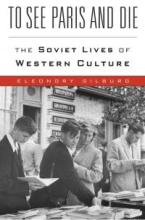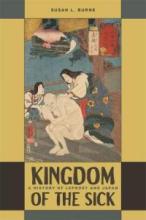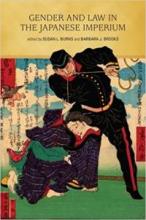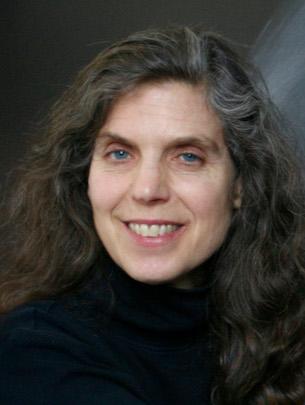
Yale University, PhD '90
BIOGRAPHY
Amy Dru Stanley is a historian of the United States, with particular interest in law, capitalism, freedom and unfreedom, human rights, the relationship between the household and economic life, and the historical experience of moral problems. Her work has appeared in scholarly books and journals, as well as in the New York Times, the Washington Post, the Nation, Dissent, Slate, and Jacobin. She has received the Quantrell Award for Excellence in Undergraduate Teaching and the Faculty Award for Excellence in Graduate Teaching and Mentoring. In 2018, she was the jury chair for the Pulitzer Prize in history.
Recent Research / Recent Publications
The Antislavery Ethic and the Spirit of Commerce: An American History of Human Rights. Cambridge, MA: Harvard University Press, forthcoming.
From Bondage to Contract: Wage Labor, Marriage and the Market in the Age of Slave Emancipation. Cambridge: Cambridge University Press, 1998.
- Frederick Jackson Turner Prize, 1999. (For the best first book in US History, awarded by the Organization of American Historians.)
- Morris D. Forkosch Award, 1999. (For the best book in intellectual history.)
- Avery O. Craven Award, 1999. (For the best book on the era of the Civil War and Reconstruction, awarded by the Organization of American Historians.)
- Frederick Douglass Prize, 1999, honorable mention. (For the best book on the history of slavery.)
- “The Free Sea: An Antislavery Idea of Human Rights,” in Cambridge History of Human Rights, edited by Jennifer Pitts and Daniel Edelstein, 2025.
- "The Sovereign Market and Sex Difference: Human Rights in America." In American Capitalism: New Histories, edited by Sven Beckert and Christine Desan. New York: Columbia University Press, 2018.
- "Histories of Capitalism and Sex Difference." Journal of the Early Republic 36, no. 2 (Sum. 2016).
- "Slave Emancipation and the Revolutionizing of Human Rights." In The World the Civil War Made, edited by Greg Downs and Kate Masur. Chapel Hill: University of North Carolina Press, 2015.
- “Contract.” In Keywords for American Cultural Studies, 2nd ed., edited by B. Burgett and G. Hendler. New York: New York University Press, 2014.
- "Slave Breeding and Free Love: An Antebellum Argument over Slavery, Capitalism, and Personhood." In Capitalism Takes Command, edited by Michael Zakim and Gary Kornblith. Chicago: University of Chicago Press, 2012.
- "Instead of Waiting for the Thirteenth Amendment: The War Power, Slave Marriage, and Inviolate Human Rights." American Historical Review 115, no. 3 (June 2010).
- "When We Were Young." In Wayne F. Miller: Photographs 1942–1958, edited by Stephen Daiter. Brooklyn: Powerhouse Books, 2008.
- "Wages, Sin, and Slavery: Some Thoughts on Free Will and Commodity Relations." Journal of the Early Republic 24 (Sum. 2004).
- "Dominion and Dependence in the Law of Freedom and Slavery." Law & Social Inquiry 28, no. 3 (Aut. 2003).
- "Marriage, Property, and Ideals of Class." In Blackwell's Companion to American Women's History, edited by Nancy Hewitt. Oxford: Blackwell Press, 2002.
- "The Right to Possess All the Faculties that God Has Given: Possessive Individualism, Slave Women, and Abolitionist Thought." In Moral Problems in American Life, edited by Lewis Perry and Karen Halttunnen. Ithaca, NY: Cornell University Press, 1999.
- "'We Did Not Separate Man and Wife, But All Had to Work': Freedom and Dependence in the Aftermath of Slave Emancipation" in Terms of Labor: Slavery, Serfdom, and Free Labor, edited by Stanley Engerman, Stanford University Press, 1999.
- "Home Life and the Morality of the Marketplace: Slavery and Freedom, Women and Men." In The Market Revolution in America, edited by Melvyn Stokes. Charlottesville: University of Virginia Press, 1996.
- "Beggars Can't Be Choosers: Compulsion and Contract in Postbellum America." Journal of American History 78, no. 4 (Mar. 1992).
- "Conjugal Bonds and Wage Labor: Rights of Contract in the Age of Emancipation." Journal of American History 75, no. 2 (Sept. 1988).
- Writes "Freedom for Sale" for Dissent Magazine on academic freedom and American history teaching
- Quoted in the Globe and Mail article, "Donald Trump has taken aim at what he calls the ‘woke’ view of American history"
- Quoted in the NYT article, "Juneteenth Reminds Us to Think About Economic Freedom, Not Just Legal Liberty"
- Quoted in the Washington Post on polarization, the history of race in the US, and the GOP
- Comments on the Florida Board of Education's guidelines on teaching Black history in Newsweek
- Co-writes with Craig Becker for the New York Times on Amazon's opposition to mail-in ballot unionization votes
- Writes for the Washington Post on the Commerce Clause and pandemic liability protection for businesses
- Quoted in the Burlington Free Press on the history of the Confederate Flag
- Quoted in the Pittsburgh Post-Gazette on the meaning of Chicago 1968
- Chairs 2018 Pulitzer Prize for History Jury
- Writes for Slate on the abolition of slavery, theatergoing, and the right to happiness
- Named an OAH Distinguished Lecturer
- Kyle Volk, PhD'08, Praises Stanley's Scholarship on the Oxford University Press blog
- Participates on Yale Panel on the 14th Amendment
- Amy Dru Stanley and Jonathan Levy Embark on New Study of the Economy
- Coorganizes "Human Trafficking, Labor Migration, and Migration Control in Comparative Historical Perspective" conference, Pozen Family Center for Human Rights
- Writes for the New York Times Opinionator blog on the Civil War Enlistment Act
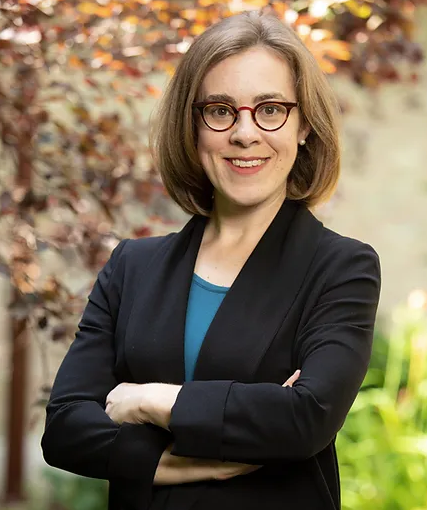
Yale University, PhD '09
BIOGRAPHY
I am an historian of modern Russia, with a special interest in nineteenth- and twentieth-century politics, culture, and ideas. My work explores how Russia's peculiar political institutions—and its status as a multiethnic empire—shaped public opinion and political cultures. It also interrogates Russia's relationship with the outside world, asking where the Russian experience belongs in the broader context of European and global history. In addition, I am interested in the theory and practice of the digital humanities.
I am currently working on a new history of the origins of the Protocols of the Elders of Zion written for a popular audience. This book offers a new account of how this notorious text came to be, and it asks what history's greatest conspiracy theory can tell us about the present moment, when conspiratorial thinking is again on the rise in society and politics.
My most recent book, Utopia’s Discontents: Russian Exiles and the Quest for Freedom, 1830–1930, was published by Oxford University Press in 2021. It is the recipient of the 2022 Wayne S. Vucinich Book Prize from ASEEES, which recognizes the most important contribution in any discipline of Slavic studies. The book provides the first synthetic account of Europe's "Russian colonies"—boisterous and politically fractious communities formed by exiles from the Russian empire that emerged across the continent in the nineteenth and early twentieth centuries. The book treats the "Russian colonies" as utopian communities in which radical activists worked to transform social relations and individual behavior, and it explores how these unique spaces influenced Russian political imaginaries as well as the culture of their host societies. Ultimately, the project offers a bold reassessment of Russia's relationship with Europe, the origins of the Russian revolution, and the creation of the Bolshevik regime.
My first book, Children of Rus’: Right-Bank Ukraine and the Invention of a Russian Nation, was published by Cornell University Press in 2013 and released in paperback in 2017. Children of Rus' argues that it was on the extreme periphery of the tsarist empire—a region that today is located at the very center of the independent nation of Ukraine—that Russian nationalism first took shape and assumed its most potent form. The book reconstructs how nineteenth-century provincial intellectuals came to see local folk customs as the purest manifestation of an ancient nation that unified all the Orthodox East Slavs, and how they successfully propagated their ideas across the empire through lobbying and mass political mobilization. In addition, it reconceptualizes state-society relations under tsarism, showing how residents of a diverse and contested peripheral region managed to shape political ideas and identities across Russia—and even beyond its borders. Children of Rus' was named a Choice Outstanding Academic Title for 2013.
My current research is enriched by technology, and I am interested in thinking through how historians can use digital tools to open new avenues for exploration and to communicate their findings to other scholars and the general public. I am particularly interested in using geo-spatial analysis to analyze flows of people, ideas, and commodities over time and across space. For examples of my (ongoing) work in digital cartography, see my Utopia's Discontents website in development and my study of émigré publications.
I have held research fellowships at Columbia, Harvard, and the Cullman Center for Scholars and Writers at the New York Public Library. My research has been funded by ACLS, IREX, Fulbright-Hays, and the NEH.
I am represented by Kathleen Anderson (kathleen@andersonliterary.com) of Anderson Literary Management.
Recent Research / Recent Publications
- Utopia’s Discontents: Russian Émigrés and the Quest for Freedom, 1830s-1930s, Oxford University Press, 2021. Awarded the 2022 Wayne S. Vucinich Prize.
- "'The Franco-Russian Marseillaise': International Exchange and the Making of Anti-Liberal Politics in Fin-de-Siècle France." Journal of Modern History 89, no. 1 (Mar. 2017): 39–78.
- "Children of Rus’: Nationalist Imaginations in Right-Bank Ukraine." In The Future of the Past: New Perspectives in Ukrainian History, edited by Serhii Plokhy. Cambridge, MA: Harvard University Press, 2016.
- "Making and Breaking the Russian Empire: The Case of Kiev’s Shul’gin Family." In Imperiale Biographien: Elitekarrieren im Habsburger, Russischen und Osmanischen Vielvölkerreich (1850–1918), edited by Malte Rolf and Tim Buchen, 178–98. Munich: Oldenbourg-Verlag, 2015.
- "Intimacy and Antipathy: Russian-Ukrainian Relations in Historical Perspective." Kritika 16, no. 1 (Win. 2015): 121–28.
- Children of Rus': Right-Bank Ukraine and the Invention of a Russian Nation. Ithaca, NY: Cornell University Press, 2013.
- "Modernist Visions and Political Conflict in Late Imperial Kiev." In Races to Modernity: Metropolitan Aspirations in Eastern Europe, 1890–1940, edited by Jan C. Behrends and Martin Kolrausch. New York: Central European Press, 2014.
- "Ukrainophile Activism and Imperial Governance in Russia's Southwestern Borderlands." Kritika 13, no. 2 (Spr. 2012): 301–26.
- "Migration, Mobility, and Political Conflict in Late Imperial Kiev." In Russia on the Move: Essays on the Politics, Society and Culture of Human Mobility, 1850–Present, edited by John Randolph and Eugene Avrutin. Urbana: University of Illinois Press, Studies of World Migrations Series, 2011.
- Writes op-ed on seizing Russian oligarchs' wealth for The Atlantic
- Interviewed for Meduza on Putin's presentation of Ukrainian and Soviet history
- Quoted in USA Today article on how historians see the invasion of Ukraine
- Quoted in Politifact on the history of Russian imperialism
- Interviewed for The World on the entangled histories of Russia and Ukraine
- Writes op-ed on immigration for The Washington Post
- Quoted in Chicago Tribune article on the meaning of "concentration camp"
- Named a 2018–19 Cullman Center Fellow at the New York Public Library
- Review of AHA session on "History and Historians in the Ukraine Crisis" by Sarah Fenton
- Quoted in National Geographic article on Ukrainian-Russian conflict
- Children of Rus' reviewed in the Moscow Times
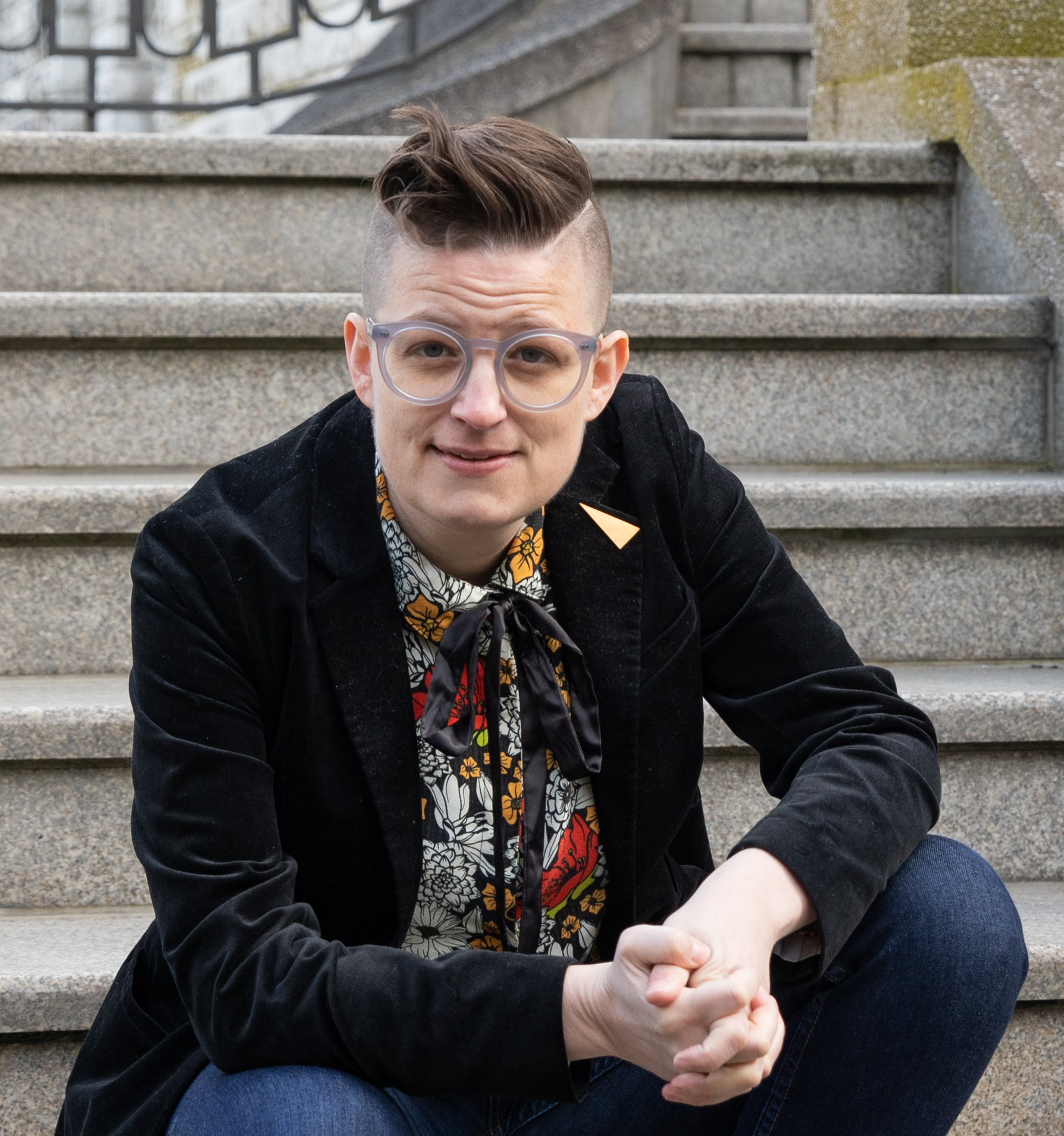
University of California, Berkeley, PhD '15
BIOGRAPHY
I am a historian of German cultural and intellectual life in the modern period. My research and teaching center on material culture, the history of museums, and the history of aesthetics.
My first book, The God Behind the Marble: The Fate of Art in the German Aesthetic State (University of Chicago Press, 2024) is a history of German cultural politics and aesthetics during the French Revolution and Napoleonic Wars. It tells this story through Germans’ engagement with the French looting of European art collections, a Kunstraub [‘art robbery’] that challenged the faith that art offered a powerful source of societal liberation in a period of revolutionary violence. By following conflicts over the ownership, interpretation, conservation, and exhibition of objects, the book argues that the world of arts administration at the beginning of the nineteenth century was a ground of struggle over the powerlessness of art to convey political meaning, a struggle with lasting consequences for how we understand the modern public museum of art. In addition to the monograph, two additional essays draw on this research: “The Honor of the Trophy: A Prussian Bronze in the Napoleonic Era” in The Things They Carried: War, Migration and Material Culture, ed. Leora Auslander and Tara Zahra (Ithaca, NY: Cornell University Press, 2018); and “Lüdwig Völkel’s Sababurg List: An Inventory of the Public Museum of Art,” in Taking Stock: Media Inventories of the German Nineteenth Century, eds. Sean Franzel, Ilinca Iurascu, and Petra McGillen (Berlin: De Gruyter, forthcoming).
I am currently at work on two projects which shift my focus from the eighteenth and nineteenth centuries both forward and backwards in time. The first, Postwar Premodern: A Baroque History of Germany after 1945 investigates how the artistic and craft traditions of the baroque period became political, personal, and aesthetic resources for making sense of the future of German society amidst the proliferating critiques of modernity in the wake of Nazism and the Holocaust. Rather than looking at historical preservation, my research is focused on episodes of historical re-use, in which a premodern past became a consumable utility for the reconstitution of German society in east and west. Chapters focus on the reuse of buildings, the restitution of art collections, the recreation of cabinets of curiosity, the study of early modern statecraft, and postwar typographical and handwriting reforms. An initial case study from this project was published as "The Splendor of Dresden in the United States, 1978-79” Representations 141, no. 1 (Winter 2018).
A branch of this book has turned into a separate project of its own about the restitution of European church bells after 1945. During the Second World War, the National Socialist regime requisitioned bells from across German and German occupied territory to be melted down and recast as armaments. This study of the many thousands of bells, largely from before 1800, that remained at the war’s end in depots in Hamburg and across northern Germany engages the fields of sounds studies, material cultural studies, history of religion, legal history, and memory studies to show how bells became tools of Cold War politics, and complex sources of cultural historical identification in the postwar world.
I received my PhD in History from the University of California Berkeley, and hold an MSI in Archives and Records Management from the University of Michigan and a BA from Bryn Mawr College. From 2015-2017, I was a Postdoctoral Fellow at the Society of Fellows at the University of Michigan in the Departments of History and Germanic Languages and Literatures. My research has been funded by the Neubauer Collegium and the Center for International Social Science Research at the University of Chicago, the American Academy in Berlin, the Mabel Mcleod Lewis Foundation, the DAAD, and the Council for Library and Information Resources.
NEWS
On February 12, 2024 from 6:00-7:00pm, I will discuss my new book, The God Behind the Marble. I will be joined in conversation by Catriona MacLeod. RSVP HERE
Histories of Culture in Disastrous Times, research project with Jennifer Allen at the Neubauer Collegium for Culture and Society
Received a 2024-2025 CISSR grant for the European church bell project
Recent Research / Recent Publications
-
The God Behind the Marble: The Fate of Art in the German Aesthetic State (University of Chicago Press, 2024).
-
"The Splendor of Dresden in the United States, 1978-79." In "The Object as Ambassador: Exhibitions in Contemporary History." Special issue, Representations 141, no. 1 (Winter 2018): 20–38.
-
"The Honor of the Trophy: A Prussian Bronze in the Napoleonic Era." In Objects of War: The Material Culture of Conflict and Displacement, ed. Leora Auslander and Tara Zahra. Ithaca, NY: Cornell University Press, 2018.
-
"The Selbst Gewählter Plan: The Schildbach Wood Library in Eighteenth-Century Hessen-Kassel." Representations 128, no. 1 (Fall 2014): 30–59.
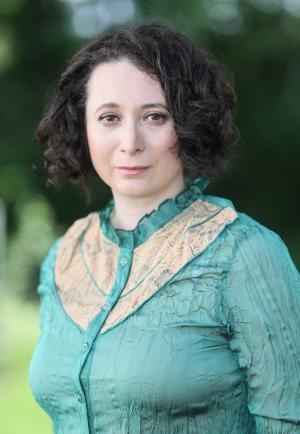
University of California, Berkeley, PhD '10
BIOGRAPHY
I specialize in the history of modern Russia and the Soviet Union, with a particular interest in Soviet culture, society, and their international context. Currently, I am at work on two book projects.
The first, Weary Sun, explores the history of tango, its creators and audiences, in Stalinist Russia and Eastern Europe. Soviet tango was made in Riga and Warsaw. Struck by the connections and exchanges between Soviet and émigré cultures, I focus on the largely unexamined Russian-speaking communities at the borders of the Soviet Union. Tango occupied a central place in the Soviet aural world, yet it fits uncomfortably in the dominant narratives and thus calls for a rethinking of Stalinist culture. This research reconstructs the sounds of Soviet courtyards, communal apartments, southern resorts, movie theaters, and parks of "rest and culture," where people encountered the tango most frequently. I seek to explain tango’s aesthetic and ideological work among other representations of socialist paradise.
Another project, The Entangled Histories of Soviet Newspeak and the Russian Language in the Twentieth Century, describes the rise and fall of Soviet newspeak as a language intricately bound to the daily uses and reforms of Russian itself. I see the Russian language as a field for defining social status and cultural authority in a post-revolutionary world. Multiple players were active in this field, including ordinary speakers of Russian and writers who experimented with the vernacular.
My first book, To See Paris and Die: The Soviet Lives of Western Culture (Harvard, 2018), is a history of the Soviet opening to the West during the 1950s and 1960s. The book investigates why and how Western cultural imports arrived in the Soviet Union on an unprecedented scale, as well as what meanings they acquired for Soviet audiences. To See Paris and Die brings together the ideas that justified cultural exchange and the diplomatic negotiations that made it possible, the secrets of museum storage rooms and the publicity of radio broadcasts, lavish international film festivals and backwater countryside screenings, enormous print runs and home-made books, state-sponsored travel and emigration. Analyzing how the Soviets received Western novels, paintings, and films, the book takes translation as its central theme — a mechanism of cultural transfer, a method of habituation of foreign imports, and a metaphor for transnational interactions. When they first appeared en masse, Western imports were extraordinary, but in the process of cross-cultural transfer that began in the mid-1950s, the foreign became quotidian—an indiscernible part of late Soviet culture and daily life.
My research has been supported by the National Endowment for the Humanities, the Kennan Institute, the American Philosophical Society, the National Council for Eurasian and East European Research, the Social Science Research Council, American Councils for International Education, the Mabelle McLeod Lewis Foundation, and the Fulbright-Hays program, among others.
Recent Research / Recent Publications
To See Paris and Die: The Soviet Lives of Western Culture. Cambridge, MA: Harvard University Press, 2018.
-
Best Book in Cultural Studies Prize, American Association of Teachers of Slavic and East European Languages, 2019
-
Laura Shannon Prize in Contemporary European Studies, Nanovic Institute, University of Notre Dame, 2020
-
Wayne S. Vucinich Book Prize, Association for Slavic, East European, and Eurasian Studies, 2019
-
Marshall D. Shulman Book Prize, Association for Slavic, East European, and Eurasian Studies, 2019
-
Honorable Mention, Aldo and Jeanne Scaglione Prize for Studies in Slavic Languages and Literatures, Modern Language Association, 2019
-
Shortlist, Council for European Studies Book Award, 2020
-
Shortlist, Best First Book Prize, American Association of Teachers of Slavic and East European Languages, 2019
-
Shortlist, Pushkin House Russian Book Prize, Pushkin House, London, 2019
The Thaw: Soviet Society and Culture during the 1950s and 1960s, edited by Denis Kozlov and Eleonory Gilburd. Toronto: University of Toronto Press, 2013.
-
"Seminal Years and the Long Arc of the Moral Universe [review essay]." Kritika: Explorations in Russian and Eurasian History 20, no. 3 (Summer 2019), 613-626.
-
"The Thaw as an Event in Russian History [coauthored with Denis Kozlov]." In The Thaw: Soviet Society and Culture during the 1950s and 1960s, edited by Denis Kozlov and Eleonory Gilburd, 18–81. Toronto: University of Toronto Press, 2013.
-
"The Revival of Soviet Internationalism in the 1950s." In The Thaw: Soviet Society and Culture during the 1950s and 1960s, edited by Denis Kozlov and Eleonory Gilburd, 262–401. Toronto: University of Toronto Press, 2013.
-
"Picasso in Thaw Culture." Cahiers du monde russe 47, no. 1–2 (Jan.–July 2006): 65–108
-
"Books and Borders: Sergei Obraztsov and Soviet Travels to London in the 1950s." In Turizm: The Russian and East European Tourist Under Capitalism and Socialism, edited by Anne Gorsuch and Diane Koenker, 227–47. Ithaca and London: Cornell University Press, 2006.
Published To See Paris and Die: The Soviet Lives of Western Culture (Harvard, 2018)
-
Wins ASEEES's Wayne S. Vucinich Book Prize and Marshall Shulman Book Prize
-
Rachel Polonsky, "When the Soviets Shimmied," New York Review of Books, Aug. 15, 2019.
-
Michele A. Berdy, "Gilburd Reveals Second Lives Behind the Iron Curtain," Moscow Times, May 25, 2019.
-
Jennifer Wilson, "How to Think Freely," New Republic, May 9, 2019.
-
Pushkin House 2019 Russian Book Prize (shortlist)
-
Harry Robertson, Book Review, Financial Times, Dec. 14, 2018.
-
Interview with Anna Chernyakhovskaya, Higher School of Economics, National Research University, Moscow, Apr. 4, 2018.
-
Interview with Alexander Kan, BBC Russian Service, June 8, 2019
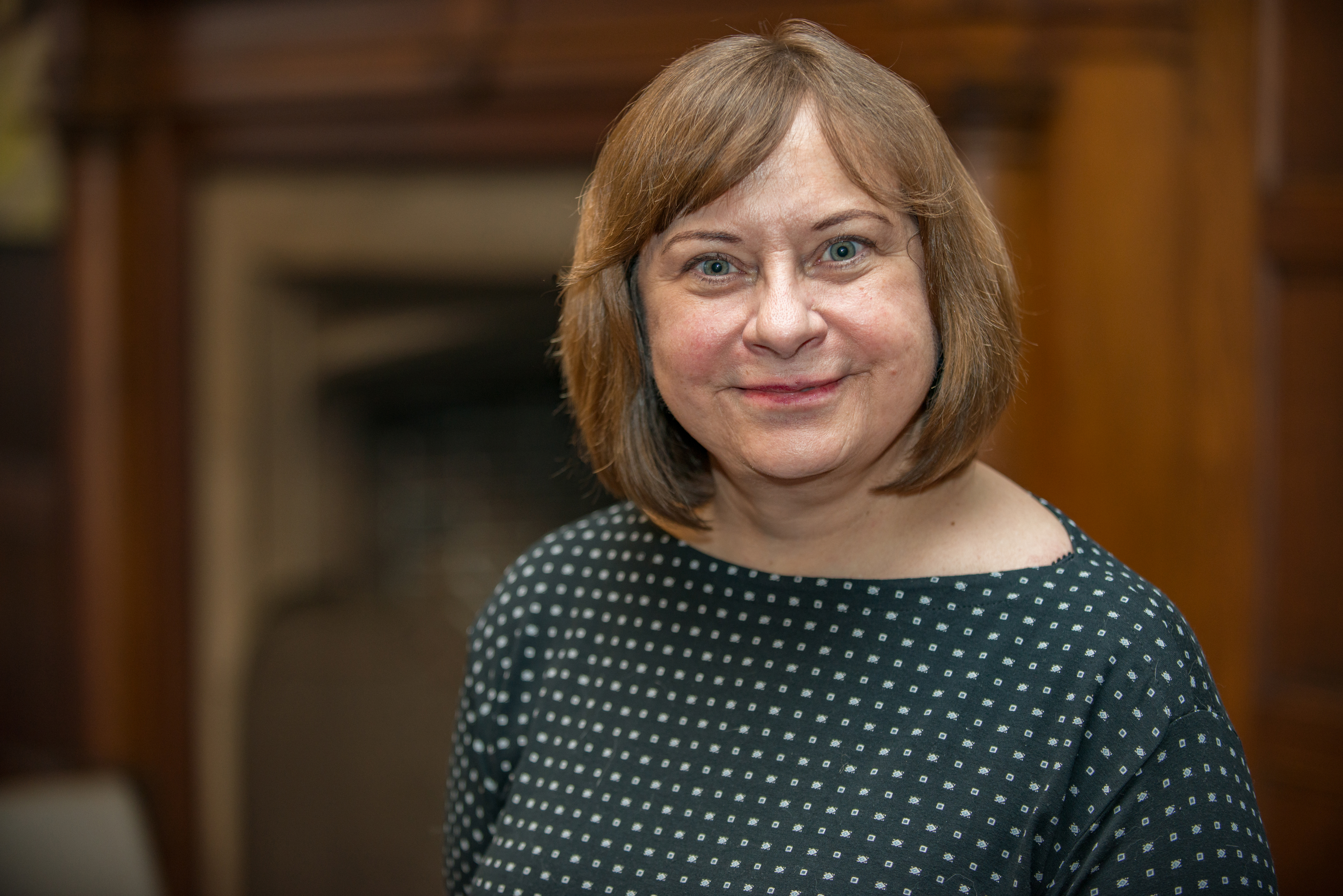
University of Chicago, PhD '94
BIOGRAPHY
I am a historian of Japan's "long" nineteenth century (1780s–1910s). I am interested in the social history of intellectual and cultural practices and the continuities and ruptures between what conventional periodization terms Japan's "early modern" and "modern" eras. My first book, Before the Nation: Kokugaku and the Imagining of Community in Early Modern Japan (Duke, 2003) examined the nativist discourse of the late Tokugawa period. It traced the efforts of early nineteenth century intellectuals to define the nature of "Japan" as a locus of personal and cultural identity and the appropriation of aspects of this discourse by modern scholars who sought to define the contours of modern Japanese nationalism.
With the completion of this project I turned to a new set of questions related to the history of the body as it came to be conceptualized within medical and legal discourses. My second monograph, Kingdom of the Sick: Leprosy, Citizenship, and Japan (University of Hawaii Press, 2019) explores the long history of leprosy in Japan from the late medieval period when it was identified as a "karmic retribution disease" to the modern period when attempts to control the disease prompted the creation of a system of public sanitaria. I argue that in the modern era leprosy, a particularly stigmatized disease, became the object of an intense debate on the place of the chronically ill and disabled within the Japanese nation.
Gender is an important category of analysis within my work and I have a long-standing interesting in issues of reproductive health and reproductive rights. Together with Barbara Brooks, I co-edited Gender and Law in the Japanese Imperium (Hawaii, 2014). I authored the introduction and contributed an essay that examined the criminalization of abortion and infanticide in late nineteenth-century Japan.
I am currently working on two additional monographs. The first explores the intellectual and professional world of an early modern doctor who practiced in the villages in Akita in the 1830s and '40s. It seeks to explore the impact of new forms of knowledge, techniques, and materia medica for medical practice and considers the implications of the "medical revolution" of the early nineteenth century for the state-sponsored introduction of Western biomedicine after 1870. The second builds on my research on medical commodities, alternative therapies, and psychiatric practice and explores the impact of the new medical marketplace on ideas about mental health in Japan from c. 1880–1940.
In recent years, I have become interested in the use of digital tools for historical research, specifically ArcGIS and text mining. I utilized ArcGIS in my research on leprosy to explore the place of private leprosy hospitals and clinics in the cityscape of late nineteenth-century Tokyo. I am working on a digital project called "Mapping Medical Tokyo" that seeks to visualize and analyze the spatial dimensions of health, disease, and medical care in the Meiji-era city.
My work has been supported by the Fulbright-Hays Fellowship, the IIE Fulbright, the Japan Foundation, the Japan Society for the Promotion of Science, and the National Endowment for the Humanities.
Courses
-
Gender and Sexuality in World Civilizations (undergraduate)
-
Edo/Tokyo: Society and the City in Japan (undergrad/grad)
-
Medicine and Culture in East Asia (undergrad/grad)
-
Contact Zones: Treaty Ports in Nineteenth Century Japan (undergrad/grad)
-
Gender and Japanese History (undergrad/grad)
Recent Research / Recent Publications
-
Kingdom of the Sick: A History of Leprosy and Japan. Honolulu: University of Hawaii Press, 2019.
-
Gender and Law in the Japanese Imperium, co-editor with Barbara J. Brooks. Honolulu: University of Hawaii Press, 2014.
-
Before the Nation: Kokugaku and the Imagining of Community in Early Modern Japan. Durham, NC: Duke University Press, 2003.
-
"The Japanese Patent Medicine Trade in East Asia: 'Women's Medicines and the Tensions of Empire." In Gender, Health, and History in East Asia, edited by Izumi Nakayama and Angela Leung. Hong Kong: Hong Kong University Press, 2018.
-
"History, Testimony, and the Afterlife of Quarantine: The National Hansen's Disease Museum of Japan." In Quarantine: Local and Global Histories, edited by Alison Bashford, 210–29. London: Palgrave, 2016.
-
"A Village Doctor Reads the Shang Han Lun: Medical Empiricism in Late Tokugawa Japan." In Antiquarianism, Language, and Medical Philology, edited by Benjamin Elman, (Leiden: Brill, 2015).
-
"Rethinking 'Leprosy Prevention': Entrepreneurial Doctors, the Meiji Press, and the Civic Origins of Biopolitics." Journal of Japanese Studies 38, no. 2 (Sum. 2012): 297–323.
-
"Marketing Health and Beauty: Advertising, Medicine, and the Modern Body in Meiji-Taisho Japan." In East Asian Visual Culture from the Treaty Ports to World War II, edited by Hans Thomsen and Jennifer Purtle, 179–202. (Chicago: Paragon Books, 2009).
-
"Marketing 'Women's Medicines': Gender, OTC Herbal Medicines, and Medical Culture in Modern Japan," Asian Medicine 7, no.1 (2009).
-
“Nanayama Jundō at Work: A Village Doctor and Medical Knowledge in Nineteenth-Century Japan.” East Asian Science, Medicine, and Technology 29 (Aut. 2008): 61–82.
-
Publishes Kingdom of the Sick: A History of Leprosy and Japan (Hawaii Press, 2019)
-
Co-edits Gender and Law in the Japanese Imperium (Hawaii, 2014) with Barbara J. Brooks
-
Discusses the history of leprosy in Japan on ABC Radio Australia [15 mins]
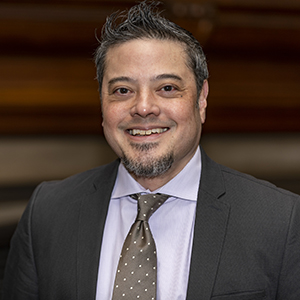
Harvard University, PhD '05
BIOGRAPHY
A deep and abiding interest in the interactions between Asian Americans and African Americans drives my first book manuscript. Focusing primarily on the home front culture of World War II, but utilizing the necessary bookends of the Popular Front of the 1930s and the Cold War of the 1950s, my monograph interrogates the ways in which different racialized and ethnic groups interacted during a heightened sense of possibility for an American multiracial democracy. Unpublished diaries of incarcerated Japanese American, Charles Kikuchi, serve as a narrative through-line for the manuscript—he wrote every day of his life, from the bombing of Pearl Harbor until his death in 1988. While Kikuchi can be considered one of a handful of radical Nisei (second-generation) intellectuals consumed by the constitutional violation of Japanese Americans, he was most deeply concerned with the welfare of African Americans and other oppressed minorities. Recognition of their equality by the rest of the nation would prove key to the fulfillment of democracy at home and abroad. My book therefore considers prototypes for Kikuchi, like Karl Yoneda, a highly visible Communist Party member during the Popular Front, intellectual mentors during the war, such as immigrant activist Louis Adamic, W.I. Thomas, and Dorothy Thomas, social scientists associated with, respectively, the Chicago school of sociology and Japanese evacuation and resettlement study, and “everyday people,” from African Americans on the South Side of Chicago to Filipino migratory farm laborers in central California. The Cold War closes off some of the interracial and democratic possibilities of this fertile intellectual era, but not before a constellation of radical counterpublics appear on the national and international maps. A cartography of this period, therefore, demonstrates not only the importance of reexamination of the Kikuchi diaries, but also the efforts and limits of these particular publics to repossess, reclaim, and redefine American democracy.
I have been honored to be a dissertation fellow at the Charles Warren Center for Studies in American History, and an Andrew W. Mellon Foundation Postdoctoral Fellow. Prior to Chicago, I taught at Harvard, Princeton, Columbia, and most recently, the University of Michigan.
Recent Research / Recent Publications
- “Filipino Grief in Five Acts.” Amerasia Journal, (2024), 1–7.
- "Race (& Love) Matter More Than Ever Now: Affirmative Action, Alliances, and Anti-Asian Hate.” In Prophetic Leadership and Visionary Hope: New Essays on the Work of Cornel West. Edited by Barbara Will. Philadelphia: University of Pennsylvania Press, 2023: 161-177.
- Jim and Jap Crow: A Cultural History of 1940's Interracial America. Princeton, NJ: Princeton University Press, 2012.
- "Charles Kikuchi's 'American Dilemma': African Americans in the Unpublished Diaries of a Nisei Intellectual." In Journey into Otherness: Essays in North American History, Culture and Literature, 191–203. Edited by Ada Savin. Amsterdam: VU Press, 2005.
- "Hardly 'Small Talk': Discussing Race in the Writing of Hisaye Yamamoto." Prospects: An Annual of American Cultural Studies 29 (2005): 435–72.
- "The Unpublished Diaries of Charles Kikuchi: 'Black and Yellow' through the Eyes of a Progressive Nisei Intellectual." Prospects: An Annual of American Cultural Studies 28 (2004): 383–47.
- "Call-and-Response: Tracing the Ideological Shifts of Richard Wright through His Correspondence with Friends and Fellow Literati." African American Review 37, no. 1 (spring 2003): 53–64.
- Interviewed on The Course Podcast, Episode 28, "How do People Get Along?"
- Discusses baseball and African American culture with the New York Times
- Discusses the connection between racism and violent attacks
- Discusses baseball, race, and history with the alumni magazine
- Delivered 2015 Harper Lecture on "Illusion Fields: Baseball and US History" [video; go to 12.40 minutes beginning of lecture; total video 73 minutes]
- Awarded 2015 Quantrell Award for Excellence in Undergraduate Teaching Excellence in Undergraduate Teaching
- BookTV (CSPAN2) conversation with Cornel West at Harlem's Hue-Man Bookstore, May 2012.
- "Just a Friendly Game." Interview with Desmond Nakano, director of White Man's Burden (1995) and American Pastime (2007). Nakano's latest film revisits the Japanese American incarceration through the lens of camp league baseball games, jazz-band swinging, and interracial romance. From Cinevue: Program for the Asian American International Film Festival, 2007.
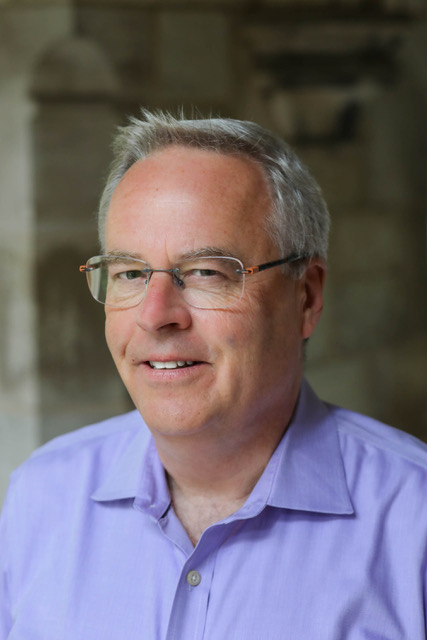
Harvard University, PhD '95
RESEARCH INTERESTS
Twentieth-century US international history; global history of human-rights politics; postcolonial Southeast Asia
BIOGRAPHY
Mark Philip Bradley is the author of The World Reimagined: Americans and Human Rights in the Twentieth Century (2016), Vietnam at War (2009), and Imagining Vietnam and America: The Making of Postcolonial Vietnam (2000), which won the Harry J. Benda Prize from the Association for Asian Studies. He is the coeditor of Making the Forever War (2021), Familiar Made Strange: American Icons and Artifacts after the Transnational Turn (2015), Making Sense of the Vietnam Wars (2008), and Truth Claims: Representation and Human Rights (2001). Bradley's work has appeared in the American Historical Review, Journal of American History, the Journal of World History, Diplomatic History, and Dissent. His current project is an intellectual and cultural history of the global South under contract with Yale University Press.
A recipient of fellowships from the John Simon Guggenheim Memorial Foundation, the American Council of Learned Societies, the National Endowment for the Humanities, and Fulbright-Hays, Bradley was appointed editor of the American Historical Review in 2021. He has served as the elected president of the Society for Historians of American Foreign Relations, general editor for the four volume Cambridge History of America and the World and coeditor of the Cornell University Press book series, The United States in the World.
Recent Research / Recent Publications
- The World Reimagined: Americans and Human Rights in the Twentieth Century. Cambridge: Cambridge University Press, 2016.
- Vietnam at War: The Search for Meaning. New York: Oxford University Press, 2009.
- Imagining Vietnam and America: The Making of Postcolonial Vietnam, 1919–1950. Chapel Hill: University of North Carolina Press, 2000.
- The Familiar Made Strange: American Icons and Artifacts after the Transnational Turn, coeditor with Brooke L. Blower. Ithaca, NY: Cornell University Press, 2015.
- Making Sense of the Vietnam Wars: Transnational and International Perspectives, coeditor with Marilyn B. Young. New York: Oxford University Press, 2008.
- Truth Claims: Representations and Human Rights, coeditor with Patrice Petro. New Brunswick, NJ: Rutgers University Press, 2002.
- “Making Tuan Andrew Nguyen’s The Spector of the Ancestors Becoming,” American Historical Review 127.3 (September 2022): 1312-18.
- “What is America and the World?”, Cambridge History of America and the World, volume 1 (Cambridge: Cambridge University Press, 2021): 1-7.
- “The Anecdote,” co-written with Lee Weng-Choy, Portable Gray 4.2 (Fall 2021): 310-18.
- "Understanding the Rise of the Global South in Pandemic Times." Diplomatic History 45, no. 3 (2021): 460-67.
- "Making Peace as a Project of Moral Reconstruction." In The Cambridge History of the Second World War, vol. 3, edited by Michael Geyer and Adam Tooze, 528–551. Cambridge: Cambridge University Press, 2015.
- Cowritten with Viet Thanh Nguyen. "Vietnam: American and Vietnamese Public Diplomacy, 1945–2010." In Adversarial States, US Foreign Policy, and Public Diplomacy, edited by Geoffrey Wiseman, 110–139. Stanford: Stanford University Press, 2015.
- “American Vernaculars: The United States and the Global Human Rights Imagination (Presidential Address),” Diplomatic History 38, no. 1 (Jan. 2014): 1–21.
- “The Charlie Maier Scare: The Historiography of American Foreign Relations, 1959–1980.” In America in the World: The Historiography of American Foreign Relations since 1941, 2nd ed., edited by Frank Costigliola and Michael J. Hogan, 9–29. Cambridge: Cambridge University Press, 2013.
- “Internationalism.” In The Oxford Encyclopedia of American Military and Diplomatic History, edited by Timothy J. Lynch, 517–23. New York: Oxford University Press, 2013.
- “The United States and the Global Human Rights Politics in the 1940s.” In Civil Religion, Human Rights and International Relations, edited by Helle Porsdam, 118–35. London: Edward Elgar, 2012.
- “Writing Human Rights History.” Il Mestiere di storico 3, no. 2 (2011): 13–30.
- “Approaching the Universal Declaration of Human Rights.” In The Human Rights Revolution: An International History, edited by Akira Iriye, Petra Goode, and William Hitchcock, 327–43. New York: Oxford University Press, 2011.
- “Setting the Stage: Vietnamese Revolutionary Nationalism and the First Vietnam War.” In The Columbia History of the Vietnam Wars, edited by David Anderson, 93–119. New York: Columbia University Press, 2011.
- "Decolonization, Revolutionary Nationalism, and the Cold War, 1919-1962." In The Cambridge History of the War, vol. 1, edited by Melvyn P. Leffler and Odd Arne Westad. Cambridge: Cambridge University Press, 2009.
- "The Ambiguities of Sovereignty: The United States and the Global Rights Cases of the 1940s." In Art of the State: Sovereignty Past and Present, edited by Douglas Howland and Luise White. Bloomington: Indiana University Press, 2008.
- "Introduction." In Human Rights and Revolution, edited by Jeffrey N. Wasserstrom, Lynn Hunt, and Greg Grandin. New York: Rowman and Littlefield, 2007.
- "Interchange: Legacies of the Vietnam Wars." Journal of American History 43, no. 2 (Sept. 2006): 452–91.
- "Making Sense of the French War: Postcolonial Modernity and Vietnam, 1946-1954." In Indochina in the Balance: New Perspectives on the First Vietnam War, edited by Mark Lawrence and Fredrik Logevall, 16–40. Cambridge, MA: Harvard University Press, 2006.
- "The Imperial and the Postcolonial." In Palgrave Advances in International History, edited by P. Finney, 247–266. London and New York: Palgrave/Macmillan Press, 2005.
- "Becoming Van Minh: Civilizational Discourse and Rights Talk in Colonial Vietnam." Journal of World History 15, no. 1 (Mar. 2004): 65–83.
- "Franklin Roosevelt, Trusteeship and US Exceptionalism: Reconsidering American Visions of Postcolonial Vietnam." In The Transformation of Southeast Asia: International Perspectives on Decolonization, edited by Marc Frey, Ronald W. Preussen, and Tan Tai Yong, 197–212. Armonk: M.E. Sharpe, 2003; and in A Companion to the Vietnam War, edited by Marilyn B.Young and Robert Buzzanco, 130–145. New York: Blackwell Publishing, 2002.
- "Contests of Memory: Remembering and Forgetting War in the Contemporary Vietnamese Cinema." In The Country of Memory: Remaking the Past in Late Socialist Vietnam, edited by Hue-Tam Ho Tai, 196–226. Berkeley: University of California Press, 2001.
- "Slouching Toward Bethlehem: Culture, Diplomacy, and the Origins of the Cold War in Vietnam." In Cold War Constructions: The Political Culture of United States Imperialism, 1945–1966, edited by Christian G. Appy, 11–34. Amherst: University of Massachusetts Press, 2000.
- Reviews Ken Burns and Lynn Novick’s The Vietnam War, American Historical Review 124, no. 1 (Feb. 2019).
- "The Universal Declaration of Human Rights at 70," Perpectives on History, Dec. 10, 2018
- Appointed Deputy Dean of the Social Sciences
- Discusses "Human Rights in the Era of Trump" for AHA Today (blog)
- Talks on "American Views on Global Human Rights," Woodrow Wilson Center [video, 88 minutes]
- Authors The World Reimagined (Cambridge, 2016)
- Convenes “Colloquy: Queering America and the World.” Diplomatic History 40, no. 1 (Jan. 2016)
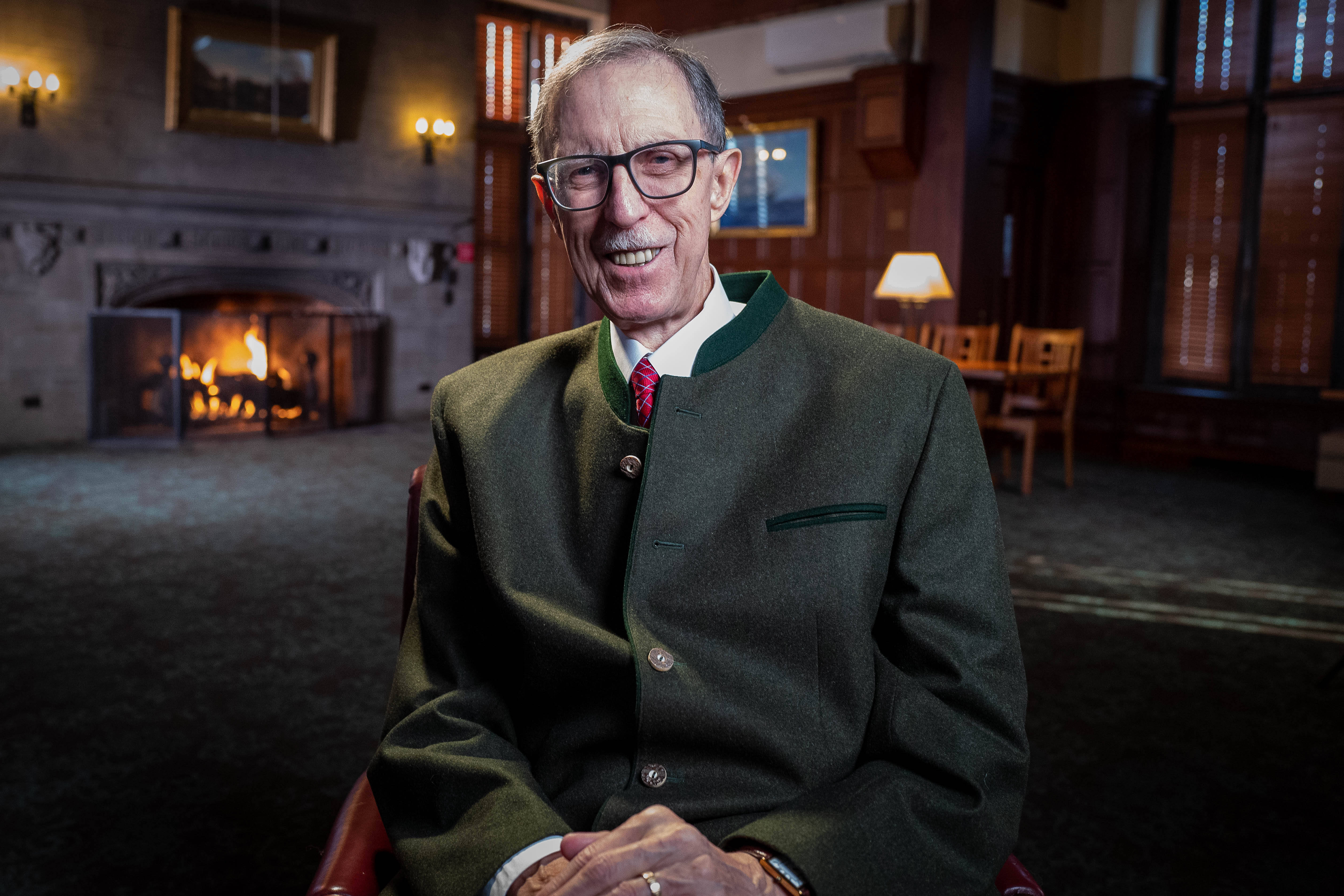
University of Chicago, PhD '75
BIOGRAPHY
My research and teaching focus on the history of modern Europe, especially on the states, the peoples, and the societies of Central Europe since 1700. My special teaching interests are German history from 1740 to 1918; the history of the Hapsburg Empire between 1648 and 1918, and the history of Austria from 1918 to the present; religion and politics in modern European history; and the history of European and American universities in the nineteenth and twentieth centuries.
In recent years my work has dealt with the history of the University and with the history of the Habsburg Empire and Republican Austria. I published The University of Chicago: A History (University of Chicago Press, 2015), and I have recently completed the Austria, 1867–1955 volume for the Oxford History of Modern Europe series, published by Oxford University Press in late 2022.
I am now working on a history of Religion and Politics in Modern European History from 1789 to 1960 for Princeton University Press.
With Jan E. Goldstein and Fredrik Albritton Jonsson, I am also an editor of The Journal of Modern History.
Recent Research / Recent Publications
- Austria, 1867-1955. Oxford History of Modern Europe Series. Oxford: Oxford University Press, 2022.
- Karl Lueger (1844–1910). Christlichsoziale Politik als Beruf. Vienna: Böhlau Verlag, 2009.
- Culture and Political Crisis in Vienna: Christian Socialism in Power, 1897–1918. Chicago: University of Chicago Press, 1995.
- Political Radicalism in Late Imperial Vienna: Origins of the Christian Social Movement, 1848–1897. Chicago: University of Chicago Press, 1981.
- Coeditor (with Jan E. Goldstein). Nineteenth-Century Europe: Liberalism and Its Critics. Chicago: University of Chicago Press, 1988.
- Coeditor (with Jan E. Goldstein). Twentieth-Century Europe. Chicago: University of Chicago Press, 1987.
- “A Catholic Triptych from Monarchy to Republic: Ignaz Seipel, Richard Schmitz, and Michael Pfliegler,” in Ulrike Harmat, ed., Die Habsburgermonarchie 1848-1918. Sonderband. Das Erbe der Habsburgermonarchie in den Nachfolgestaaten. Brüche und Kontinuitäten (Vienna, 2025), pp. 917-52.
- "Die Gründung der Republik (1918)." In 100 Jahre Republik: Meilensteine und Wendepunkte 1918–1920. Edited by Andreas Huber. Vienna, 2020.
- "From an Absolutist to a Constitutional State: The Political System." In Franz Joseph 1830–1916. Edited by Karl Vocelka and Martin Mutschlechner, 34–37. Vienna: Brandstätter, 2016.
- "Badeni and the Revolution of 1897." In Bananen, Cola, Zeitgeschichte: Oliver Rathkolb und das lange 20. Jahrhundert. Edited by Lucile Dreidemy et al. 2 vols. Vienna: Böhlau, 2015. Vol. 1, 69–84.
- "Power, Partisanship, and the Grid of Democratic Politics: 1907 as the Pivot Point of Modern Austrian History." Austrian History Yearbook 44 (2013): 148–74.
- "Richard Schmitz and the Tradition of Imperial Catholic Politics in Austria 1907–1934." Demokratie und Geschichte. Jahrbuch des Karl von Vogelsang-Institutes 13/14 (2009/2010): 95–134.
- "The 'Collectivism of Democracy': Mass Politics in Vienna and Chicago, 1890–1918." Jahrbuch des Vereins für Geschichte der Stadt Wien 62/63 (2006/2007): 9–49.
- "Tradition und Wandel—Die Christlich Soziale Partei am Vorabend des Ersten Weltkrieges." Demokratie und Geschichte. Jahrbuch des Karl von Vogelsang-Institutes 9/10 (2005/2006): 73–99.
- "Political Catholicism in Austria, 1880-1960." Contemporary Austrian Studies 13 (2004): 6–36.
- "Silent War and Bitter Peace: The Austrian Revolution of 1918." Austrian History Yearbook 34 (2003): 1–56.
- "Wiener Konservatismus vom Reich zur Republik: Ignaz Seipel und die österreichische Politik." In Konservative Profile: Ideen und Praxis in der Politik zwischen FM Radetzky, Karl Kraus und Alois Mock. Edited by Ulrich E. Zellenberg, 341–361. Graz: Ares, 2003.
- "Catholics, Christians, and the Challenges of Democracy: The Heritage of the Nineteenth Century." In Christdemokratie in Europa im 20. Jahrhundert. Edited by Michael Gehler, Wolfram Kaiser, and Helmut Wohnout, 23–59. Vienna: Böhlau, 2001.
- "Religion and Political Development in Central Europe around 1900: A View from Vienna." Austrian History Yearbook 25 (1994): 13–57.
- "Christian Socialism under the Empire. Some Reflections." In Geschichte Zwischen Freiheit und Ordnung, 57–74. Graz: Styria, 1991.
- "Some Reflections on the Problem of Austria, Germany, and Mitteleuropa." Central European History 22 (1989): 301–15.
- "Austrian Catholics and the World: Facing Political Turmoil in the Early Twentieth Century." In The Mirror of History, 315–352. Santa Barbara, CA: ABC-Clio, 1988.
- Austria in the 1980s: Heritage of the Past, Contours of the Future. Washington, DC: Aspen Institute for Humanistic Studies, 1987.
- "The End of an Old Regime: Visions of Political Reform in Late Imperial Austria." Journal of Modern History 58 (1986): 159–93.
- "Karl Lueger and the Viennese Jews." Yearbook: The Leo Baeck Institute 26 (1981): 125–44.
- "Veränderungen im politischen Leben Wiens: Die Grossstadt Wien, der Radikalismus der Beamten und die Wahlen von 1891." Jahrbuchdes Vereins für Geschichte der Stadt Wien 36/37 (1980/1981): 95–172/117–76.
- "Freud, Marriage and Late Viennese Liberalism: A Commentary from 1905." Journal of Modern History 50 (1978): 72–102.
- "A. J. P. Taylor and the Art of Modern History." Journal of Modern History 49 (1977): 40–72.
- The University of Chicago: A History, Enlarged Edition. Chicago: University of Chicago Press, 2024.
- The University of Chicago: A History. Chicago: University of Chicago Press, 2015.
The following papers are published in the College's Occasional Papers on Higher Education Series.
- Volume XXVII. Thirty Years in the Field | Annual Report to Faculty – October 25, 2022
- Volume XXVI. Insider Visions of the University: Thorstein Veblen, William Benton and John Benton on the Identity of the University of Chicago – October 26, 2021
- Volume XXV. Charles H. Judd, an Empire of Testing, and the 'Science of Education' – October 29, 2019
- Volume XXIV. ‘The Universities and the Promise of American Life – October 24, 2017
- Volume XXIII. ‘Higher Education in America and Europe Around 1900’: Some Perspectives on Our Shared History and Its Relevance For Our Time – October 18, 2016
- Volume XXII. ‘A Hell of a Job Getting it Squared Around’: Three Presidents in Times of Fundamental Change: Ernest D. Burton, Lawrence A. Kimpton, and Edward H. Levi – October 30, 2012
- Volume XXI. ‘Teaching at a University of a Certain Sort’: Education at the University of Chicago Over the Past Century – October 18, 2011
- Volume XX. ‘Not as a Thing for the Moment, but for All Time’: The University of Chicago and Its Histories – October 19, 2010
- Volume XIX. ‘A Noble and Symmetrical Conception of Life’: The Arts at Chicago on the Edge of a New Century – October 27, 2009
- Volume XVIII. ‘The Kind of University That We Desire to Become’: Student Housing and the Educational Mission of the University of Chicago – October 28, 2008
- Volume XVII. ‘We are All Islanders to Begin With’: The University of Chicago and the World in the Late Nineteenth and Twentieth Centuries – October 30, 2007
- Volume XVI. A Twentieth-century Cosmos: The New Plan and the Origins of General Education at Chicago – October 31, 2006
- Volume XV. ‘Broad and Christian in the Fullest Sense’: William Rainey Harper and the University of Chicago – October 25, 2005
- Volume XIII. The ‘Persistence to Keep Everlastingly at It’: Fund-raising and Philanthropy at Chicago in the Twentieth Century – October 26, 2004
- Volume XII. Judson’s War and Hutchins’s Peace: The University of Chicago and War in the Twentieth Century – October 28, 2003
- Volume X. Academic Freedom and the Modern University: The Experience of the University of Chicago – May 20, 2016
- Volume VIII. The Organization of the College and the Divisions in the 1920s and 1930s – October 30, 2001
- Volume VI. Building for a Long Future: The Role of the Trustees in the Early University – October 17, 2000
- Volume IV. The University of Chicago in the 1960s and 1970s – October 19, 1999
- Volume III. Continuity & Change: The College as a Sponsor of Research and Teaching – October 20, 1998
- Volume II. Continuity & Change: The College as an Advocate of Curricular Innovation and Debate – October 21, 1997
- Volume I. Continuity & Change: The College as a Member of the Wider University – October 22, 1996
- "Drafting Salvation." University of Chicago Magazine (December 1995): 18–21.
- Appointed to Sixth Term as Dean of the College
- Completes a scholarly history of the University of Chicago.
- Awarded a doctorate honoris causa by the University of Vienna on the occasion of the university's 650th anniversary, at the Dies Honorum ceremony in Vienna on May 13, 2015.
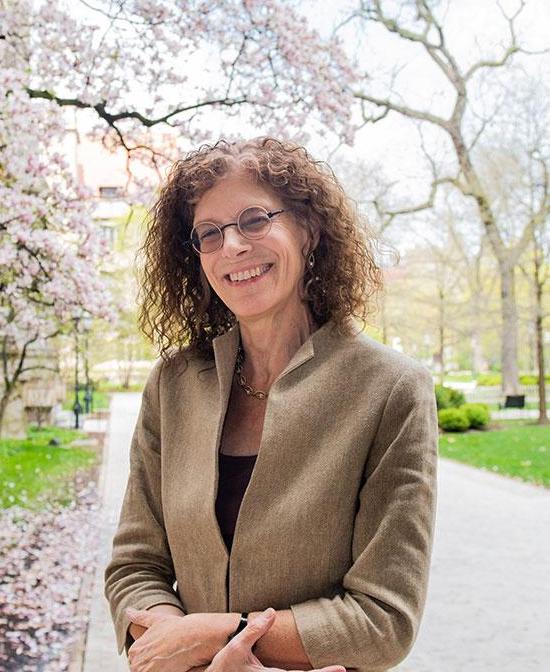
Brown University, PhD '88
BIOGRAPHY
The primary national focus of my research is modern France, but I have found myself intrigued by research problems best treated transnationally. My most recent book, Cultural Revolutions, moves across the Atlantic world from Britain, to colonial and early national America, and finally eastwards again to France. My ongoing pair of projects, Strangers at Home and Conundrums of Commemoration, stay on the European continent but involve a comparative analysis of Paris and Berlin in the twentieth century. Finally, although I have not yet published extensively in this area, I maintain an active interest in and regularly teach the history of European colonialism and the postcolonial world it left behind.
Conceptually, my work focuses on the intersection of material culture, everyday life, and politics. I seek to explain how and why everyday things have become catalysts for conflict, means of expressing identities and constructing selves, vehicles for dissenting opinions, and sites of unexpected state intervention. My research agenda is based on the hypothesis, informed by phenomenology and feminist theory, that key to answering these questions is the close and careful study of material culture, but a close and careful study that always links the concreteness of everyday goods to the abstractions of polity, society, and economy.
Although the courses I offer are necessarily broader and more general than this research agenda, they have been systematically informed by it. I use material and well as visual and textual sources in virtually all my classes, and nearly all are transnational in reach.
TEACHING
Undergraduate courses (selected)
-
Problems in Gender Studies
-
Europe 1930 to the present
-
Colonizations Civ III
-
Jewish Civ III
-
Modern Jewish History
-
Cultural Revolutions
Graduate courses (selected)
-
Seminar: Religion, Politics and Society in Modern Europe (with John Boyer)
-
Everyday Life in Modern Europe (with Sheila Fitzpatrick)
-
Seminar: The Politics of Memory in France and Germany (with Michael Geyer)
-
Gender in Europe (with Susan Gal)
-
Seminar: Race, Racism and and Anti-Racist Movements in Modern Europe
Recent fields for general examinations
-
Modern European History
-
Modern French History
-
Gender History and Theory
-
Culture and Politics in Modern Europe
-
European Social History
Titles of some recent (or current) AB and AM theses and PhD dissertations
-
Islam and the Republic: A Study of the Effects of the Algerian Civil War on French Understandings of Islam
-
Female Action and the Closing of the Women’s Clubs during the Reign of Terror
-
War Relic: Revisiting the Leaning Virgin of Albert
-
Working Class Milieus under Attack: Struggles between the Left and Right in Leipzig and Lyon, 1929–1936 (co-chair with Michael Geyer)
-
The Evolution of French Abolitionism and the Memories of the French and Haitian Revolutions, 1815–1848
-
The Ground Beneath their Feet: Agricultural Industrialisation and the Remapping of Rural France, 1954–1976
-
Making Islam French Unsettling French Algeria: Settlement, Terror, and Violence in the French-Algerian War, 1954–1962.
-
The Permanent Souvenir: Tattoos and Travel from Banks to Barnum Cultivating the Nation, Refining Empire: Wine, Sugar, and Nation-building in Guadeloupe and the Aude, 1880–1910
-
The Imperialism of Un-Free Trade: Nineteenth Century British Wine-Trading Enclaves in Oporto, Madeira, and Andalusia
-
Writing Black, Talking Back: Consuming, Performing, and Selling Race in Postwar France, 1945–1968
-
From Children to Citizens: Republican and Catholic Primary Education in France, 1880–1914
-
Fashioning the Folk: The Production and Reproduction of Alsatian Traditional Dress, 1871–1939
-
The Rebirth of the Mediterranean: Migrants, Race, Nation, and Labor in the Western Mediterranean, 1914–1940
-
Pale Fire: Jews in Revolutionary White Russia, 1917–1929 (cochair with Sheila Fitzpatrick)
-
Selling Paris: The Real Estate Market and Commercial Culture in the Nineteenth-Century Capital
Recent Research / Recent Publications
My publications in the domain of material culture and the histories of production and consumption include two books: Cultural Revolutions: Everyday Life and Politics in Britain, North America, and France (Oxford: Berg Press, 2008; Berkeley: University of California Press, 2009); French translation (Presses Universitaires de Mirail, 2009) and Taste and Power: Furnishing Modern France (Berkeley: University of California Press, 1996). I am also currently working on two book-length projects in this area: The Everyday of Modern Citizenship: France and Germany 1918–1940 and Conundrums of Commemoration.
My articles on material cultural and politics include "Perceptions of Beauty and the Problem of Consciousness," in Lenard Berlanstein, ed. Rethinking Labor History (Urbana: Univeristy of Illinois Press, 1993); "After the Revolution: Recycling Ancien Régime Style in the Nineteenth Century," in Bryant T. Ragan and Elizabeth Williams, eds. Recreating Authority in Revolutionary France (New Brunswick, NJ: Rutgers University Press, 1992), pp. 144–174; "The Gendering of Consumer Practices in Nineteenth-Century France," in Victoria de Grazia and Ellen Furlough, eds. Sex of Things: Essays on Gender and Consumption (Berkeley: University of California Press, 1996), pp. 79–112; “Regeneration through the Everyday? Furniture in Revolutionary Paris,” in a special issue of Art History 28, no. 1 (Spring 2005), ed. Katie Scott, and; “Beyond Words,” American Historical Review (October 2005); “Historians and Architectural History,” Journal of the Society of Architectural Historians (March 2006).
My work on material culture, postcolonialism, and everyday politics in contemporary Europe includes three essays: "'Sambo' in Paris: Race and Racism in the Iconography of the Everyday," (coauthored with Tom Holt) in Susan Peabody and Tyler Stovall, eds. The Color of Liberty: Histories of Race in France, (Raleigh, N.C.: Duke University Press, 2002); "Bavarian Crucifixes and French Headscarves: Religious Practices and the Postmodern European State," Cultural Dynamics 12/3 (2000): 183–209 and "Accommodation, Resistance, and Eigensinn: Evolués and Sapeurs between Africa and Europe," in Belinda Davis, Michael Wildt, eds. Alltag, Erfahurng, Eigensinn: Historisch-Anthropologische Erkundungen (Frankfurt/New York: Campus Verlag, 2008), pp. 205–217.
My most recent area of research is at the intersection of Jewish history and material culture. Some early thoughts on those questions may be found in "'Jewish Taste'? Jews, and the Aesthetics of Everyday Life in Paris and Berlin, 1933–1942," in Histories of Leisure, ed. Rudy Koshar, 299–318 (Oxford: Berg Press, 2002). That reflection has taken a somewhat different turns in "Resisting Context: The Spiritual Objects of Tobi Kahn," in Objects of the Spirit: Ritual and the Art of Tobi Kahn, ed. Emily Bilski, 71–78 (New York: Avoda/Hudson Hills, 2004); "Coming Home? Jews in Postwar Paris," Journal of Contemporary History 40, no. 2 (2005): 237–59; and "The Boundaries of Jewishness or when is a Cultural Practice Jewish?" Jewish Social Studies (Spr. 2009). Finally, "Archiving a Life: Post-Shoah Paradoxes of Memory Legacies" for a volume edited by Alf Lüdtke and Sebastien Jobs, submitted September 2008, is my most recent venture in this area.
My work in the field of feminist history and gender studies includes Différence des sexes et protection sociale (XIXe–XXe siecles), a coedited volume with Michelle Zancarini-Fournel (Paris: Presses Universitaires de Vincennes, 1995); "Feminist Theory and Social History: Explorations in the Politics of Identity," Radical History Review 53 (Fall 1992): 158–76; "Do Women's + Feminist + Men's + Lesbian and Gay + Queer Studies = Gender Studies?" differences 9, no. 3 (Fall 1997): 1–30; Le genre de la nation. Fall 2000 issue of Clio: Histoire, femmes et sociétés on gender, citizenship, and the nation, coedited with Michelle Zancarini-Fournel; "Women's Suffrage, Citizenship Law and National Identity: Gendering the Nation-State in France and Germany,1871–1918," in Women's Rights and Human Rights: International Historical Perspectives, ed. Patricia Grimshaw, Katie Holmes and Marilyn Lake, 138–52 (London: Macmillan, 2001); "Gender at the Intersection of the Disciplines," Cahiers Parisiens/Parisian Notebooks 2 (2006): 434–46; and an issue on "Judaïsme(s): genre et religion" for Clio: Femmes, Genre, Histoire 44 (2016), co-edited Sylvie Steinberg.
-
Recipient of the Quantrell Award for excellence in undergraduate teaching, 2023
-
Co-edits Objects of War with Tara Zahra, 2018
-
Featured in "French Historians under the Spotlight," French History Network (blog), Apr. 2017
-
Delivers Samuel and Lillian Solotkin Memorial Lecture in Jewish Studies, Indiana University, Feb. 2017
-
Taste and Power: Furnishing Modern France cited "Trump, Taste, and Power," Arts & Econ (blog), 2017
-
Leads Teaching from Objects workshop, Western Society for French History, 2015
-
Co-organizes "People and Things on the Move" conference with Tara Zahra, Neubauer Collegium, May 2015
-
Named the inaugural Arthur and Joann Rasmussen Professor in Western Civilization
-
Awarded Faculty Award for Excellence in Graduate Teaching and Mentoring
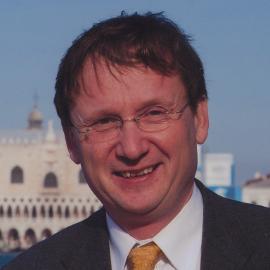
University of Cambridge, PhD '92
BIOGRAPHY
Adrian Johns is the author of The Science of Reading: Information, Media, and Mind in Modern America (Chicago, 2023), Death of a Pirate: British Radio and the Making of the Information Age (Norton, 2010), Piracy: The Intellectual Property Wars from Gutenberg to Gates (Chicago, 2009), and The Nature of the Book: Print and Knowledge in the Making (Chicago, 1998), and co-editor (with James Evans) of Beyond Craft and Code: Human and Algorithmic Cultures, Past and Present (Osiris 38, 2023, forthcoming). He has also authored dozens of papers in the histories of science, the book, media, and information. The Nature of the Book won the Leo Gershoy Award of the American Historical Association, the John Ben Snow Prize of the North American Conference on British Studies, the Louis Gottschalk Prize of the American Society for Eighteenth-Century Studies, and the SHARP Prize for the best work on the history of authorship, reading, and publishing. Piracy won the Laing Prize and was selected as Book of the Year by the American Society for Information Science and Technology. Johns has been awarded Guggenheim, ACLS, NEH, and NSF fellowships. Educated in Britain at the University of Cambridge, he has also taught at the University of Kent at Canterbury, the University of California, San Diego, and the California Institute of Technology.
Recent Research / Recent Publications
The Science of Reading: Information, Media, and Mind in Modern America (Chicago: University of Chicago Press, 2023).
Beyond Craft and Code: Human and Algorithmic Cultures, Past and Present (Osiris 38, 2023). (Co-edited with James Evans.)
Presentation on "The Science of Reading and the Making of the Information Society," UIUC, March 2024 (video).
Presentation on “After Hours: Historia Coelestis,” Linda Hall Library, November 2022 (video).
Publication of “Piracy in the Book Trade” [essay review of Robert Darnton, Piracy and Publishing], American Historical Review 127:3 (September 2022), 1433–1435.
“Watching Readers Reading.” Textual Practice 35:9 (October 2021), 1429-52.
“Privacy.” In A. Blair, P. Duguid, A.-S. Goering, and A. Grafton (eds.), Information: A Historical Companion(Princeton: Princeton University Press, 2021), 686-93.
“The New Rules of Knowledge” (with James Evans). An introduction to a tryptich of papers on algorithmic epistemology. Critical Inquiry 46:4 (Summer 2020), 806-12.
“Lay Assaying and the Scientific Citizen.” Proceedings of the American Philosophical Society 160, no. 1 (Mar. 2016): 18–25.
”The Coming of Print to Europe.” In The Cambridge Companion to the History of the Book, edited by L. Howsam, 107–24. Cambridge: Cambridge University Press, 2015.
“Intellectual Property.” In Globalization in Practice, edited by N. Thrift, A. Tickell, S. Woolgar, and W. H. Rupp, 183–88. Oxford: Oxford University Press, 2014.
“The Uses of Print in the History of Science.” Papers of the Bibliographical Society of America 107, no. 4 (Dec. 2013): 393–420.
“The Ecological Origins of Copyright Skepticism.” World Intellectual Property Organization Journal 5, no. 1 (2013): 54–64.
“The Information Defense Industry and the Culture of Networks.” Amodern 2: Network Archaeology (2013).
Death of a Pirate: British Radio and the Making of the Information Age. New York: W.W. Norton, 2010.
Piracy: The Intellectual Property Wars from Gutenberg to Gates. Chicago: University of Chicago Press, 2009.
- Gordon J. Laing Award, University of Chicago Press
- Book of the Year Award, American Society for Information Science and Technology
- Outstanding Academic Title Awards, Choice Magazine
The Nature of the Book: Print and Knowledge in the Making. Chicago: University of Chicago Press, 1998.
